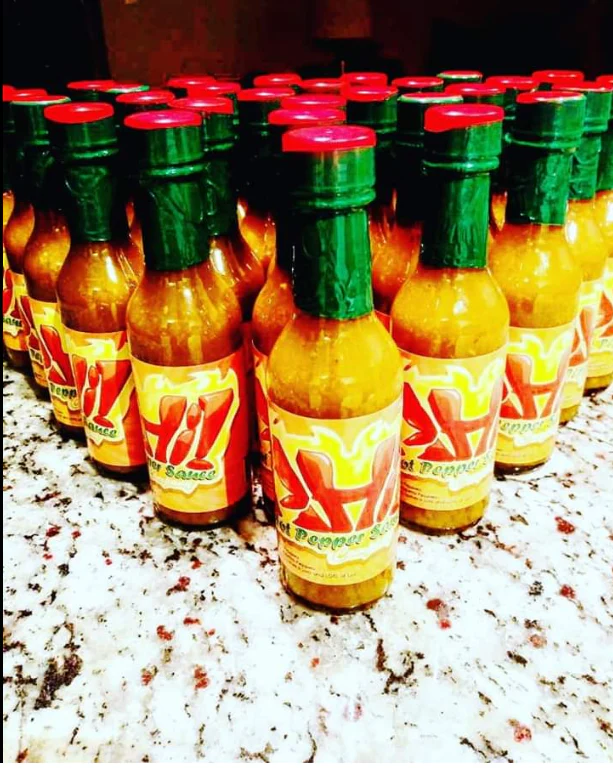Commissary Kitchens: A Complete Guide for Food Entrepreneurs
Commissary Kitchens: A Complete Guide for Food Entrepreneurs
History of Commissary Kitchens
The concept of shared spaces for culinary ventures is not entirely new. Historically, community kitchens were common in many cultures where communal cooking and eating played a pivotal role. These shared spaces strengthened social ties and allowed for resource pooling. The modern-day commissary kitchen evolved with urbanization and the rise of food entrepreneurship. With real estate prices soaring and the growing demand for varied food services, commissary kitchens have become a beacon for aspiring chefs and food businesses.
Advantages & Disadvantages
Advantages:
- Cost-Effective: Renting a space in a commissary kitchen can be far cheaper than leasing or buying commercial property.
- Flexibility: These kitchens offer varied schedules, allowing businesses to choose their preferred time slots.
- Amenities: Commissary kitchens often come equipped with state-of-the-art appliances and spacious storage.
- Delivery: Centralized delivery options offered by commissary kitchens significantly enhance operational efficiency.
Disadvantages:
- Shared Space: Peak hours can be congested, leading to potential conflicts over space or equipment.
- Fixed Locations: Some kitchens might not be ideally located for all businesses, affecting logistics.
Benefits of Using Commissary Kitchens for Food Businesses in Detail
The food industry is vast, and one size doesn't fit all. Commissary kitchens, with their shared kitchen facilities, have revolutionized how small to medium food businesses operate. The primary advantage lies in the reduced
startup costs. Instead of investing a massive sum into establishing a commercial kitchen, businesses can rent space as per their requirements.
Secondly, it provides scalability. A startup food venture might not need a full-scale kitchen initially, but as demand grows, the need for space might increase. Commissary kitchens offer that flexibility, allowing businesses to upscale or downscale based on demand.
Moreover, these kitchens come fully equipped with commercial-grade equipment, reducing capital expenditure and ensuring the production process meets industry standards. This setting also fosters a collaborative environment. Businesses can network, learn, and even collaborate, opening avenues for cross-promotion and joint ventures.
Potential Drawbacks of Shared Commissary Kitchens in Detail
While commissary kitchens present several advantages, they aren't devoid of challenges. The shared nature means there's potential for conflict over equipment usage during peak hours. It requires businesses to meticulously plan their schedules.
Another concern is the standardization of equipment. While the kitchens provide commercial-grade tools, they might not cater to specialized culinary needs. Businesses might need to invest in bespoke equipment, which could offset some cost advantages.
Space might become a concern during peak seasons, like holidays, when many businesses ramp up production. It requires foresight to book slots in advance.
Lastly, for those businesses focusing on niche diets or allergen-free foods, cross-contamination can be a risk in a shared environment. They might require dedicated spaces or need to implement stringent cleaning protocols.
How Do Commissary Kitchens Work? Unpacking the 'Kitchen as a Service' Concept
Commissary kitchens have bridged the gap between entrepreneurial spirit and the requirement of a commercial kitchen. At their core, they've become the Airbnb of the culinary world, offering a 'Kitchen as a Service' (KaaS) model.
KaaS goes beyond just space rental. It encapsulates a range of services like food storage, cleaning, waste disposal, and sometimes delivery. A food truck might find parking and maintenance support, while a caterer would appreciate vast cold storage areas. The essence of commissary kitchens is the seamless integration of backend operations, letting food entrepreneurs focus on their culinary creations.
Who Taps into the Value of Commissary Kitchens?
From transient operations like food trucks to expansive endeavors like restaurant chains, commissary kitchens cater to a vast clientele.
Food Trucks
Being on the move requires a solid base, and commissary kitchens offer precisely that. They are indispensable for food prep, cleaning, and sometimes, even secure parking.Ghost Kitchens
:In the age of digital dining, ghost kitchens are thriving. Commissary kitchens provide the infrastructure without the overheads of traditional dine-in spaces.Restaurant Chains
Consistency is king for restaurant chains. Commissary kitchens allow them to prepare food centrally, ensuring uniformity across outlets.Concession Stands
Events can be hectic, requiring quick service. These stands rely on commissary kitchens for pre-event preparations.Pop-up Restaurants
The ephemeral nature of pop-ups means they need flexibility. Commissary kitchens provide just that.Caterers
Large events, varied menus, and stringent timelines define catering. Commissary kitchens offer the equipment and space to make this possible.Bakers
From pastries to bread, bakers find the facilities tailored to their needs, especially if they don't own a storefront.
Where to Find Commissary Kitchens
The quest for the perfect commissary kitchen can sometimes be daunting. Given the vastness and variety of options, knowing where to look is the key to landing the ideal spot for your food business. Here are some of the best places to search:
- Online Directories: Websites dedicated to listing commissary kitchens can be a good starting point. They often feature filters for location, amenities, and pricing, making the search process streamlined.
- Local Health Departments: They sometimes maintain lists of licensed commissary kitchens available for rent in the area.
- Culinary Schools: Some culinary institutions rent out their kitchens during off-hours, providing a professional space for businesses.
- Community Centers and Churches: These places might have commercial-grade kitchens available for rent, especially during non-event days.
- BISTRO BUDDY: Standing out as the ultimate spot for commissary kitchen business listings, BISTRO BUDDY offers more than just listings. Their integrated booking software allows for smooth transactions, ensuring that payments are secure and straightforward. Whether you're a kitchen owner looking to list your space or a food entrepreneur seeking the ideal kitchen, BISTRO BUDDY's platform is designed to cater to all your needs. Their user-friendly interface and comprehensive features make them a top choice for both businesses and kitchen spaces.
- Word of Mouth: Sometimes, the best recommendations come from fellow food entrepreneurs. Join local food business groups, attend trade events, or be part of online communities to gather insights.
- Networking Events: Events like food expos, culinary workshops, or industry seminars can be an excellent opportunity to connect with potential leads for kitchen spaces.
- Remember, the key to finding the right commissary kitchen lies in understanding your business's unique needs and being thorough in your research. While online platforms and recommendations can guide you, personal visits and trials will give you a genuine feel of the space and its suitability for your operations.
BISTRO BUDDY's Commercial Commissary Kitchen Directory
Comparing Commissary and Ghost Kitchens
The landscape of the food industry has evolved significantly with the introduction of innovative kitchen models. Two terms that frequently emerge are "commissary kitchen" and "ghost kitchen." Although they might sound similar and are occasionally used interchangeably, they denote distinct operations within the culinary world. Let's break down the differences:
Commissary Kitchens
Purpose: Commissary kitchens act as shared kitchen spaces, enabling various food entrepreneurs to prepare and store their culinary creations. Essentially, they're akin to "co-working" environments for chefs and food vendors.
Users: These kitchens are a haven for a spectrum of food businesses, from food trucks to bakers, and from pop-up restaurants to concession stands. Even established restaurant chains might lean on commissary kitchens for centralized prep.
Services: Going beyond mere cooking spaces, commissary kitchens often incorporate value-added services like storage, cleaning, and waste disposal. Embracing the 'Kitchen as a Service' (KaaS) ethos, they offer a holistic infrastructure for food businesses.
Location: Their locations are diverse, ranging from bustling urban areas to quieter suburban locales. Importantly, their location isn't always tied to serving end customers directly.
Purpose: Exclusively designed for food delivery, ghost kitchens—also known as virtual or cloud kitchens—do away with the traditional dine-in model. Their operations are unseen, focused solely on fulfilling online orders.
Users: Virtual restaurants are primary users, existing predominantly on delivery apps. That said, established brick-and-mortar restaurants might tap into ghost kitchens to widen their delivery net without the overheads of a new physical outpost.
Services: The hallmark of a ghost kitchen is its laser-focus on optimizing the food prep cycle for swift deliveries. Integration with delivery platforms and fine-tuned prep stations are standard features.
Location: Ghost kitchens strategically position themselves in high-demand zones for delivery, often leaning towards industrial areas over bustling streets since walk-ins are non-existent.
For both commissary and ghost kitchens, the rising star in the arena of business directories is BISTRO BUDDY. Not only is it a definitive platform for Commissary Kitchen listings, but it also houses an extensive Ghost Kitchen directory. And for those venturing into the delivery business, BISTRO BUDDY's online ordering software ensures local deliveries are managed with finesse. The platform truly encapsulates the essence of the modern food business landscape, making it easier for entrepreneurs to navigate their culinary journey.
Types of Commercial Kitchens Available for Rent
Various commercial kitchen setups cater to the diverse needs of food entrepreneurs. These range from dedicated spaces for bakers with specialized ovens and pastry stations to large-scale setups for catering businesses. There are also modular spaces that can be reconfigured based on the tenant's needs. Some kitchens even specialize in specific cuisines, offering equipment tailored for them.
Deciphering the Cost Dynamics of Commercial Kitchen Rentals
The financial aspect of renting a commissary kitchen isn't just about the rent. There are utilities, maintenance fees, and sometimes, charges for additional services like storage or delivery. It's vital for businesses to understand the complete cost breakdown, including potential hidden fees, to ensure profitability. Contracts play a crucial role, and businesses should be wary of long lock-in periods or stringent exit clauses.
Roadmap to Finding Your Ideal Commissary Kitchen
Finding the right commissary kitchen involves thorough research. Start by identifying your specific needs—equipment, space, and additional services. Networking with other food entrepreneurs, attending industry events, or using specialized platforms can aid in the search. Always visit potential spaces, assess their cleanliness, equipment quality, and gauge the overall environment. Lastly, read reviews or get references to ensure the kitchen's reputation aligns with your standards.
Highlighting the Significance for Mobile Food Ventures
For mobile ventures, the logistical challenge isn't just about food prep. It's about maintenance, licensing, and sometimes, even parking. Commissary kitchens can become the hub for these operations. They don't just offer cooking facilities but also provide a secure space, especially for trucks or carts, ensuring that the business runs smoothly.
Harnessing the Power of Commissary Kitchens for Food Entrepreneurship
As the food industry evolves, commissary kitchens are becoming the backbone for many entrepreneurial ventures. Their flexibility, cost-effectiveness, and comprehensive offerings make them indispensable. Whether you're a budding chef with a food truck dream or a caterer looking to expand, commissary kitchens offer the space, equipment, and services to make those dreams a reality.
Centralized Delivery Options from Commissary Kitchens
In today's fast-paced food industry, the ability to deliver food efficiently from a central location has become crucial. Commissary kitchens, due to their nature of housing multiple businesses under one roof, have become central hubs for various delivery methods. Here's a closer look:
Traditional Delivery Services: These involve partnering with popular third-party delivery platforms. By centralizing their operations, food businesses can work with multiple platforms simultaneously, expanding their delivery radius and serving a more extensive customer base.
In-House Delivery Teams: Some businesses opt to maintain their delivery fleet. Operating from a commissary kitchen means having a central, strategic starting point, which often results in faster delivery times and more control over the delivery process.
Delivery Drones and Robots: With the advancements in technology, drone and robot deliveries are no longer a distant dream. Commissary kitchens, due to their scale, can serve as launch and return points for these tech-driven delivery methods, ensuring quicker food deliveries and minimizing human errors.
Centralized Pickup Points: In addition to direct-to-door delivery, some food businesses offer customers the option to pick up their orders from centralized pickup points, often set up in collaboration with other local businesses or public spaces. Commissary kitchens can serve as these points or act as hubs where all orders are consolidated before being dispatched.
Bulk Delivery for Special Events: Caterers and event food providers can benefit from the centralized nature of commissary kitchens. Prepping and dispatching food for multiple events from a single location ensures consistency and often leads to cost savings.
Sustainability in Deliveries: Centralized deliveries from commissary kitchens also open the door to sustainable delivery practices. Think reusable packaging, optimized delivery routes to reduce carbon footprints, and collaboration with eco-friendly delivery service providers.
Using BISTRO BUDDY's platform can further enhance this delivery process. With its integrated booking software, food entrepreneurs can easily schedule and manage their delivery slots, ensuring seamless coordination among multiple businesses operating from the same commissary kitchen.
Setting Up Your Space
Once you've rented space in a commissary kitchen, it's crucial to optimize it for efficiency. While spaces are standardized, small tweaks can personalize the area. Consider investing in mobile storage units or color-coded containers. Having a checklist for setup and teardown can ensure consistency and speed.
Legal and Health Considerations
Navigating the health codes and legalities is essential. Regular inspections, hygiene standards, and food safety protocols must be met. It's advisable to consult with local health departments and obtain necessary licenses.
Comparison with Alternatives
While commissary kitchens offer multiple benefits, they aren't the only option. Personal commercial kitchens provide autonomy but come with higher initial costs. Home kitchens might be suitable for small-scale operations but face stringent regulations.
The Future of Commissary Kitchens
With the food industry's landscape ever-evolving, the importance of adaptable and scalable solutions grows. Tech integrations, sustainable practices, and expansions into suburban areas could shape the future of commissary kitchens.
Choosing the Right Kitchen
Factors like proximity to suppliers, customer base, amenities, cost, and community reviews play a role. It's vital to visit potential spaces, understand their terms, and gauge their suitability to your business model.
Booking and Scheduling
Modern commissary kitchens often employ digital platforms for slot reservations. One standout platform is BISTRO BUDDY, which not only serves as an ultimate directory for commissary kitchens but also offers an advanced booking and quotation software tailored to the unique needs of kitchen entrepreneurs. Using such platforms ensures that businesses can access user-friendly interfaces, flexible scheduling, and transparent availability, optimizing their kitchen use.
Networking Opportunities
These shared spaces can be hubs for collaboration. Networking can lead to shared promotional activities, culinary collaborations, or even shared logistics and supply chain integrations.
Sustainability Considerations
Eco-consciousness is becoming paramount. Kitchens emphasizing waste reduction, energy efficiency, and sustainable sourcing hold a competitive edge.
Technology and Kitchens
From digital booking systems to IoT-enabled appliances that track usage and efficiency, technology is revolutionizing commissary kitchens. Integrating tech solutions can streamline operations and enhance efficiency.
Diverse Cuisine Opportunities
Commissary kitchens can be melting pots of culinary diversity. They provide a platform to experiment, infuse global flavors, and cater to niche markets.
Growth and Scaling
The flexibility of commissary kitchens is unparalleled. They support businesses in expansion endeavors, be it widening menus, increasing operational hours, or venturing into new avenues like event catering or pop-ups.
























